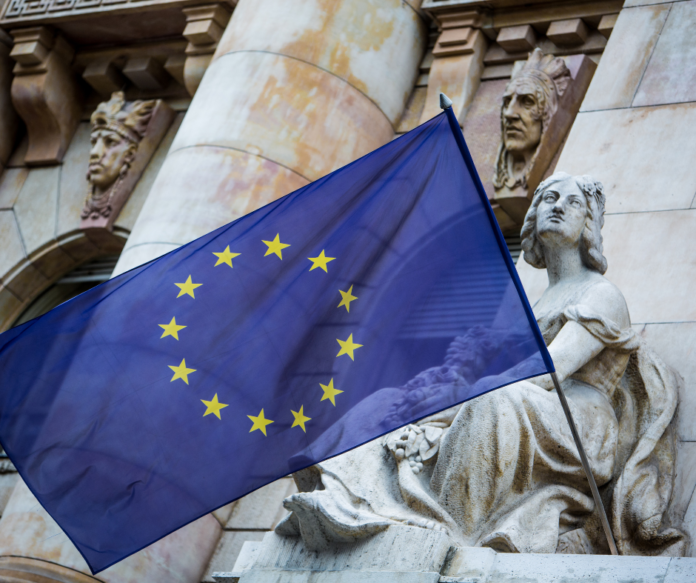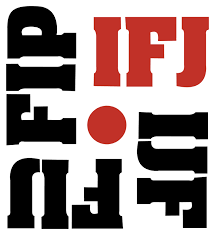The candidate countries for EU membership must be fully in line with the European Media Freedom Act, which in the meantime needs improving, writes Antoaneta Nikolova.
Antoineta Nikolova is the director of the Balkan Free Media Initiative.
For many years, the focus of non-governmental organisations fighting for media freedom, human rights and the rule of law was away from Europe. For activists and donors, Europe, compared to authoritarian states on other continents, was a place where media freedom was taken for granted.
Seven of the top 10 places in the Reporters Without Borders media freedom index are European countries. And yet, in the last few years, it was in Europe that we witnessed a severe erosion of the media ecosystem.
In Poland, Hungary, Greece and Bulgaria, which hit the bottom of EU countries in the Reporters Without Borders Index for several years in a row, the media environment is seriously threatened, and in Slovakia and Malta, journalists were killed because of their work. The signal to the European institutions was more than evident.
“The media are essential for the functioning of our democratic societies and economies,” says the European Commission’s draft European Media Freedom Act, presented on 16 September.
The draft document sets specific goals: to harmonise national legislative frameworks, to protect the public from harmful content, including from third countries (i.a., Russia, China, etc.), to reduce the risk of state and private interference in editorial policy, as well as to ensure transparent, fair ad allocation and verified criteria of people metric agencies.
This is commendable and timely, but not enough.
Media ownership coverage rules, for example, are discretionary and voluntary.
For oligarchs in Eastern Europe, it’s like “nothing changes if nothing changes”. The total control over the media in the Balkans happened precisely thanks to the hidden media ownership, and if Europe expects them to give up their tools of influence voluntarily, then the media law will remain in the decorative sphere of wishful thinking. The same goes for advertising models and people metrics agencies, which are vital to the existence of free information and targeted advertising that most media need to survive.
Media ownership is at the core of power capture.
Media freedom cannot be solved if media ownership is not regulated.
The media in the Balkans are suffocated by the grip of political players whose hands are the “bread and the knife”. For a brief reference, it is enough to look at the analyses for the proxy owners in Bulgaria and North Macedonia, for example.
Paradoxically, countries, where the media environment is in critical condition have been more receptive to welcoming the document than champions of media freedom. That in itself is worrying.
The main objections to the proposed media law have come from the Baltic countries, which are considered successful enough that there is no need for Europe to meddle with them and intrude into their sovereign legislations. For Sweden, many elements to harmonise laws do not even exist in their national laws, and Estonia rates its media as healthy enough not to need a remedy.
Media freedom organisations also have mixed feelings.
EU Disinfo Lab, e.g. believes that Article 17 of the draft law could undo much of the progress made in the fight against disinformation and pave the way for further lobbying for the total exemption of the media from media content moderation.
Such objections led the EC to extend the consultation period until the end of the year. Until then, the relevant parties can express their positions, which so far timidly expressed.
For the EU member states from the Balkans, the responsibility is even more significant because their evaluations will be essential for the candidate countries for membership.
The EU must ensure that the new media law can have a positive impact in acceding countries where the deterioration of media freedom is a growing problem. In the Balkans, for example, leading media spewing misinformation undermines attitudes towards the EU in favour of Russia and China.
This is everyday life in Serbia, which has yet to progress on its 2020 media strategy or alignment with the EU’s Common Foreign and Security Policy. In fact, civil society groups and MEPs are now concerned as Serbia appears poised to grant all five of its national TV licenses to pro-Russian and pro-government media outlets.
First of all, the EU should oppose Serbia’s non-transparent process for granting these licenses.
Equally important for long-term stability, the EU should make the alignment of local legislation with European media law a condition for progress in accession negotiations and freeze funding if clear progress is not made. A free media is the cornerstone of democracy, and the EU must find a way to use its new law to support its neighbours where democracy is under threat.








